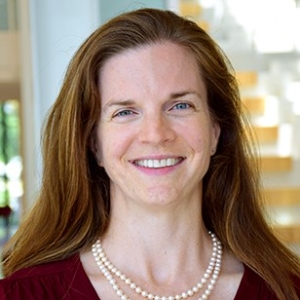Supporting At-Risk Users through Responsible Computing
December 9-10, 2024
Washington DC
Washington D.C., DC, USA
Event Contact
Haley Griffin
hgriffin@cra.org
Event Type
Event Category
Researchers across industry, academia, and civil society are committed to studying and developing solutions to help support people who have a higher risk of experiencing technology-facilitated abuse and/or suffering disproportionate harm from negative experiences that (at least partially) occur in online contexts (i.e., at-risk users). Individuals and groups may be at higher risk due to their individual characteristics or minority status (e.g., gender, age, race, disability, socioeconomic status), intersectional identities or unique circumstances (e.g., LGBTQ+ community members, survivors of intimate partner abuse, individuals in recovery from substance abuse), and/or their social stature (e.g., politicians, celebrities). These at-risk groups often face increased susceptibility to harm, exploitation, or discrimination that can be exacerbated through the use of technology. As such, it is imperative to develop evidence-based, sociotechnical solutions that mitigate harm; yet, doing so requires careful consideration on how to conduct safe and ethical research with these groups, as well as how to responsibly design and develop human-centered solutions that help protect and empower them in ways that meaningfully improve their lives.
This CCC Visioning Workshop brings together researchers across industry, academia, and civil society who are actively studying or developing solutions for at-risk groups. The researchers will discuss the challenges they face, as well as their proposed solutions and frameworks, to develop a cohesive roadmap for tackling the grand challenges related to technology and at-risk users that will be on the horizon for the next five to ten years.
This workshop builds upon the prior community-based effort of CCC’s 2023 Community Driven Approaches to Research in Technology & Society (CDARTS) Visioning Workshop, where researchers connected with community partners to define a shared language and mutually beneficial projects. This workshop builds upon joint efforts in industry and academia to develop frameworks for unifying at-risk research and guidelines for operationalizing and conducting digital privacy and safety research involving at-risk users, including those from vulnerable groups. We invite workshop participants to present frameworks, guidelines, and other tools or materials that have helped to shape their work.
In this two-day workshop, the first day will be devoted to networking among and between researchers who study different at-risk groups to identify shared struggles and unique differences across their research contexts, as well as synthesizing existing frameworks, best practices, and interventions they have found useful in facilitating their work. Day two will transition to identifying unsolved problems and grand challenges that subsume research contexts to create a roadmap for the computing community to prioritize and address these challenges. We will leverage frameworks, such as the Cynefin decision-making framework that classifies problem spaces as “clear” (known knowns), “complicated” (known unknowns), “complex” (unknown unknowns), or “chaotic” (unclear and unknown) to decide how best to move forward to advance knowledge and the field as a whole.
Workshop outcomes include the formation of a new research community of expert collaborators who work with at-risk groups in both shared and adjacent spaces and a whitepaper report based on workshop discussions about best practices and guidelines that can be shared broadly to aid other computing researchers. The workshop will also explore the formation of expert advisory boards that could serve as an invaluable resource for members of industry, academia, and civil society who are supporting at-risk users through research and the development of sociotechnical solutions.
The event will use Chatham House Rules where attendees can share knowledge they learned at the workshop, but not attribute what they share to a particular individual or institution.
December 9, 2024 (Monday)
| 09:30 AM | Optional Workshop Breakfast | Elmore |
| 11:00 AM | Welcome/Introductions/Pre-workshop survey | Cecchi |
| 11:30 AM | Lighting Slide Introductions | Cecchi |
| 11:45 AM | What notable contributions have been made on the topic of supporting at-risk users? | Cecchi |
| 12:15 PM | What are the open research challenges to support at-risk users? | Cecchi |
| 12:45 PM | Lunch | Elmore |
| 01:45 PM | Panel: Tools & Resources for Conducting Research that Involves At-Risk Users | Moderater: Sunny Consolvo, Google | Panelists: Ed Cutrell, Microsoft Research Nicki Dell, Cornell University Tawanna Dillahunt, University of Michigan Jessica Pater, Parkview Health | Cecchi |
| 03:00 PM | Share your Toolbox | Cecchi |
| 03:30 PM | Coffee Break | Cecchi Foyer |
| 04:00 PM | Identifying Gaps and Next Steps | Cecchi |
| 05:00 PM | Report Outs | Cecchi |
| 06:30 PM | Dinner | Tony and Joe's Seafood Place |
December 10, 2024 (Tuesday)
| 08:15 AM | Breakfast | Elmore |
| 09:00 AM | Break-out groups formation | Cecchi |
| 09:15 AM | Break-out groups discussion | Boardroom/Timchenko/Corning/Cecchi |
| 10:15 AM | Break-out groups report out | Cecchi |
| 10:30 AM | Coffe Break | Cecchi Foyer |
| 11:00 AM | Break-out groups formation | Cecchi |
| 11:15 AM | Break-out groups discussion | Boardroom/Timchenko/Corning/Cecchi |
| 12:15 PM | Break-out groups report out | Cecchi |
| 12:30 PM | Lunch | Elmore |
| 01:30 PM | Break-out groups writing | Cecchi |
| 02:30 PM | Plans for action | Cecchi |

Pamela Wisniewski, Vanderbilt University (CCC)

Katie Siek, Indiana University (CRA & CCC)

Sunny Consolvo, Google

Kevin Butler, University of Florida (CCC)

Tammy Toscos, Parkview Health (CRA-I)






